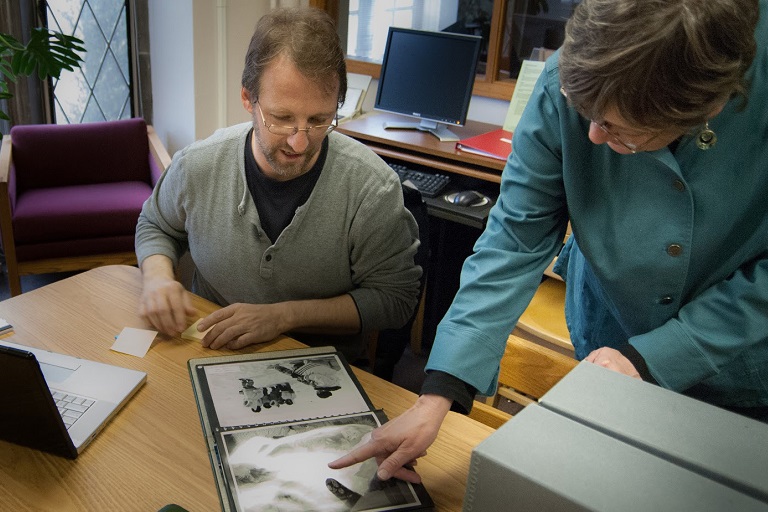The term "access" refers to the ways a user discovers material, how the archive delivers that material, and the ways in which particular uses are specified by a deposit agreement or the nature of the material. For example, a user may use an online catalog to find a collection at the Archives of Traditional Music, visit our Listening Library to locate a specific recording to listen to, use Media Collections Online to deliver the item online, but be limited to listening to the item in the library because copyright restrictions prevent the ATM from making the recording available on the entire web. Each of these activities falls under the definition of what we term as "access."
Along with our commitment to long-term preservation, the ATM is committed to high levels of access. We provide listening copies for local and international researchers as part of our core set of services. ATM staff work hard to provide as much access as we can, and nearly all of our holdings are accessible by visiting our Listening Library.
Field and Broadcast Collections
Access to each field and broadcast collection in the ATM holdings is governed by a deposit agreement between the donor and the ATM. While some donors put no restrictions on patron access to their collections, other donors prefer to retain greater control over access issues pertaining to their collections. In most cases, educational and research use is freely available, but, in some cases, the agreement stipulates that the depositor or the subjects' permission must be granted before it can be used. The ATM is legally bound to honor the wishes of the depositing collectors. To learn more information about the types of access to ATM holdings, please read Access Types at the Archives of Traditional Music. Use can be restricted or at least slowed by several factors. Some older collections were made without concern for cultural sensitivities or notions of cultural ownership, and so some collections are restricted for ethical reasons.
Commercial Collections
All but the earliest commercial recordings remain under some form of copyright and so ATM is only able to provide access to these recordings through an in-person visit to ATM or to users who have or have been granted some sort of affiliation with Indiana University.
Requesting Access
To access materials not readily available through Media Collections Online or Image Collections Online, contact atmusic @ indiana . edu
Location:

